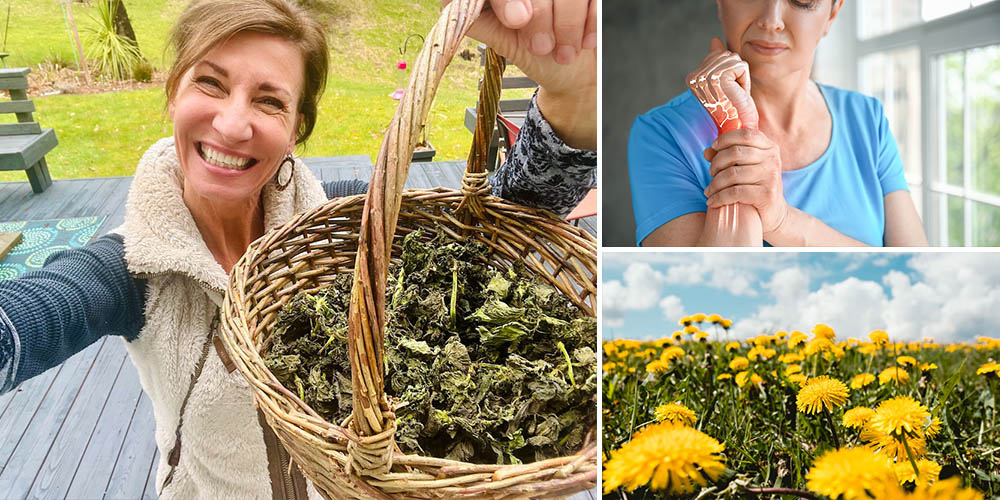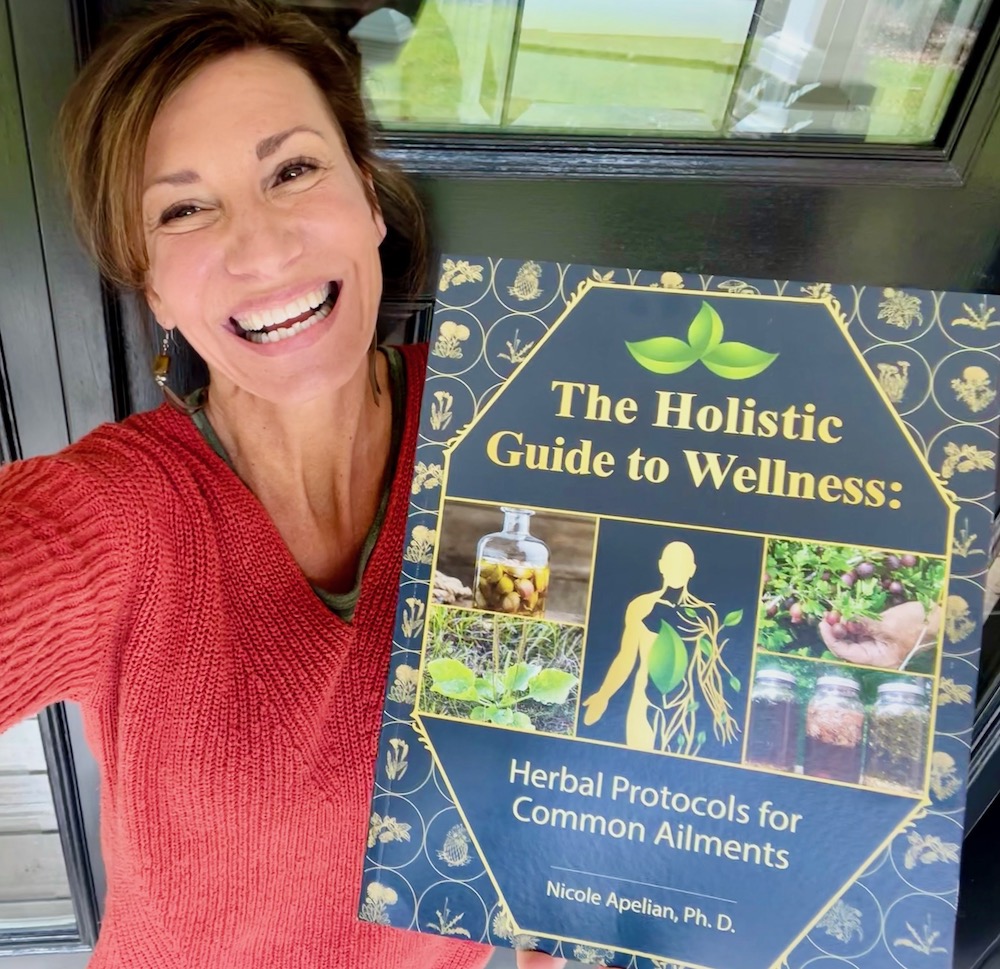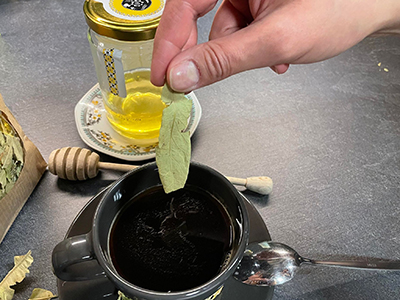
Here’s How to Boost Your Bone Health & Avoid Osteoporosis, Naturally!
The Foundation for Healthy Bones
Did you know that your body creates a completely new skeleton approximately every ten years? It’s true! While most believe bones are fixed, they are in fact going through a constant cycle of growth and remodeling. That’s why it’s crucial to understand how to boost your bone health and avoid osteoporosis before problems arise.
Important minerals such as calcium, magnesium, and phosphorus are involved in this dynamic dance of being deposited, taken out, and recycled on a regular basis — a process which is influenced by hormone levels, frequency of exercise, diet, and genetics.
When we don’t have enough mineral deposition and poor bone remodeling, osteoporosis can result. This is a condition where the strength, density, and quality of bone becomes compromised, creating “porous bone” that leads to increased risk of fractures and injuries.
Even though the condition is associated with family history, a small frame, and some diseases, lifestyle choices play a large role in the development and severity.
Here we will explore different methods for preserving and strengthening the bones, including vitamins and minerals, lifestyle, and herbal medicine.
Who is at risk for developing osteoporosis?
Every year, approximately 9 million fractures occur worldwide due to osteoporosis. This has significant impacts on quality of life and mobility. It also increases the risk of death. Women tend to be more prone to the condition, as are those with a small or petite frame. That’s why it’s essential to understand how to boost your bone health and avoid osteoporosis before it’s too late.
Other risk factors include lack of exercise, vitamin D deficiency, smoking, excessive alcohol consumption, family history, celiac disease, and inflammatory bowel disease.
Steroids, estrogen and testosterone-reducing drugs, diuretics, antidepressants, and antacids also can increase your risk of developing the condition.
Diseases that impact calcium absorption and the rate of bone breakdown include hyperthyroidism, metabolic syndrome, diabetes, and kidney disease.
Vitamins and Minerals To Boost Your Bone Health and Avoid Osteoporosis
 Calcium is a well-known mineral that promotes bone building — and for good reason as it makes up about 40% of our bone’s total weight and is essential for construction, formation, and maintenance.
Calcium is a well-known mineral that promotes bone building — and for good reason as it makes up about 40% of our bone’s total weight and is essential for construction, formation, and maintenance.
In order to improve absorption and reduce negative impacts on the cardiovascular system, make sure you are getting enough vitamins D and K. Low levels of vitamin D are common in those with osteoporosis, so it is always a good idea get a blood test to make sure you are within range to prevent future problems.
Additionally, magnesium is another crucial mineral considering 50-60% of all magnesium in the body is found in the bones.
Low blood levels are associated with the development of osteoporosis as magnesium is needed for vitamin D activation, calcium recruitment into the bone, and to regulate parathyroid hormone, which controls whether the bones keep calcium or release it.
Adequate vitamin C is also important because it encourages healthy collagen formation, which is part of the core matrix in bone where minerals are deposited.
By getting enough vitamin C, about 1,000 mg/day, studies have shown it can reduce the risk of osteoporosis by an impressive 33% and reduce the incidence of hip fractures.
Trace minerals such as strontium, silicon, and boron are essential as they improve bone strength and building, suppress breakdown, better bone mass, and stimulate bone growth.
Omega-3 fatty acids and B-complex vitamins also decrease the rate of bone deterioration and improve bone density, particularly in the hip.
Herbal Medicine
Certain plants have phytoestrogenic properties that help to support bone health. These include: dandelion leaves (Taraxacum officinale), horny goat weed (Epimedium spp.), licorice root (Glycyrrhiza glabra), red clover (Trillium pratense), and stinging nettle (Urtica dioica).
Except for dandelion leaves, which can be eaten fresh as a salad, these herbs are best used as tinctures. A potent stinging nettle extract can be found in my apothecary.
For suggested dosage of these nutrients and herbal medicines, please see my latest book: “The Holistic Guide to Wellness: Herbal Protocols for Common Ailments“.
The Best Diet To Boost Your Bone Health and Avoid Osteoporosis

A whole-food, Mediterranean-style diet rich in fresh fruits, vegetables, whole grains, and beans is ideal for bone health. It is far better than a diet high in sugar, unhealthy fats, and excessive protein. Studies show that people in Mediterranean countries experience fewer issues with osteoporosis and fractures than those in neighboring regions.
Prioritizing the right nutrients is one of the best ways to boost your bone health and avoid osteoporosis naturally. Keeping protein levels balanced is key. Too much protein forces the kidneys to excrete calcium. Too little means there aren’t enough raw materials to produce collagen, which supports bones and skin.
Also, avoid refined sugar as much as possible. It disrupts hormones and triggers inflammation. This reduces calcium absorption in the gut and increases calcium elimination through the kidneys. High blood sugar levels are also associated with vitamin D deficiency and lower rates of tooth and bone growth.
Moreover, keep sodium intake in-check. Excessive sodium in the diet (over 4,000 mg/day) is associated with high levels of calcium being excreted in the urine. However, severely low-sodium diets have also been associated with lower bone mass. Balance is essential, aim for around 1,500-2,000 mg/day.
- Good sources of calcium include dairy (milk, cheese, yogurt, cottage cheese), soybeans and tofu, sardines, salmon, almonds, and leafy green vegetables.
- To make sure you are getting enough vitamin C, focus on citrus fruits, bell peppers, berries, broccoli, and Brussels sprouts.
- Vitamin K is found in green leafy vegetables, broccoli, cauliflower, fish, eggs and kiwi.
- Salmon, tuna, sardines, flaxseed, chia seed, walnuts, and hemp seed are good sources of omega-3 fatty acids.
- For B-complex vitamins, focus on beans, eggs, legumes, and green leafy vegetables.
Exercise To Boost Your Bone Health and Avoid Osteoporosis
A sedentary lifestyle greatly contributes to the risk of developing osteoporosis, particularly if you are postmenopausal. Weight bearing, aerobic, and resistance exercise all help to improve bone mineral density. Understanding how to boost your bone health and avoid osteoporosis through movement is crucial to maintaining strength and mobility as you age.
Strength training and balance exercises, such as yoga, improve proprioceptive awareness. This helps lower the risk of falls and subsequent fractures. Aim for at least one hour of exercise, three times a week.
But what if stiff joints, aching knees, or nagging back pain are already creeping into your daily life?
I’ve seen too many people turn to lab-made painkillers that only mask the problem while filling their bodies with toxic chemicals. But nature has already given us powerful, fast-acting remedies for inflammation and joint pain! That’s why I created my Joint & Movement Salve, a potent herbal blend that quickly soothes stiff joints, calms inflammation, and provides deep relief—without the dangerous side effects of pharmaceuticals.
👉 Click here to try my anti-inflammatory Joint & Movement Salve and experience natural pain relief today!
My Holistic Guide: Your Personal Wellness Coach for a Healthier You
 Want to dive deep into natural health? “The Holistic Guide to Wellness: Herbal Protocols for Common Ailments” will give you the tools to take charge of your health with detailed protocols that address a wide-range of conditions — including osteoporosis and bone health.
Want to dive deep into natural health? “The Holistic Guide to Wellness: Herbal Protocols for Common Ailments” will give you the tools to take charge of your health with detailed protocols that address a wide-range of conditions — including osteoporosis and bone health.
It is an unfortunate fact that many people today live in a state of perpetual illness, managing their symptoms with pharmaceuticals, but not addressing the root cause of their problems.
Together with the help of MDs, NDs, and scientists, I’ve compiled 45 easy-to-follow, science-backed holistic protocols to help you improve the quality of your life.
Even if you’re in good health right now, it’s wise to have these on hand as one day they may help you or someone you care about.
For each ailment, you’ll find specific foods, physical and mental exercises, stress-relief techniques, vitamins, minerals, herbs, massages, stretches, detoxes, natural remedies, and a whole range of other holistic practices — all based in peer-reviewed science.
If you want to follow an integrated, holistic, natural approach, this is the book you want on your bookshelf.
Take charge of your health at home naturally with my “The Holistic Guide to Wellness: Herbal Protocols for Common Ailments“. Don’t wait. Tap here today and discover the power of natural medicine for yourself!



I would like to know what I can do since I am allergic to greens. I can’t even lay on grass. I cannot have dairy, either. What can I do?
This is great information, written so it’s easy to understand